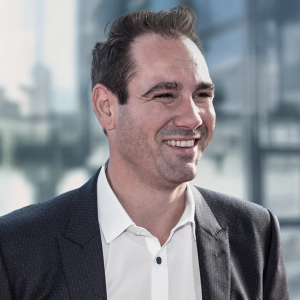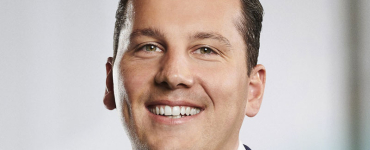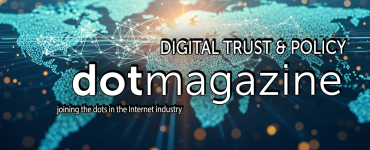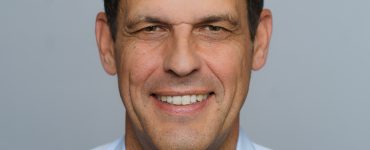Whether digital infrastructures, energy efficiency or regulatory developments: digital transformation is not an isolated process, but requires networking, exchange and clear interfaces between business, politics and society. In a short interview, Jan Moll, CEO of the dtm group and driving force behind netforum, talks about current developments in the digital industry, the importance of energy-efficient technologies and why platforms such as netforum are indispensable for future-proof digitalisation.
Mr Moll, what do you think are the three most important developments in the digital industry right now – in terms of infrastructure, energy and the world of work?
The current developments in the digital industry can hardly be viewed in isolation, as they essentially have a common origin: the AI transformation. We are not only experiencing technological progress in individual areas, but also a structural change that affects infrastructure, energy and the world of work in equal measure. The key point is that these three areas are not separate sectors – they interact with each other, must be thought about and designed together, and are embedded in a larger, connected system comprising several areas.
netforum brings together experts from various fields – why exactly are these interfaces so important for digital transformation?
Digital transformation is not a singular phenomenon, but a cross-industry change with numerous interconnections. Only those who look beyond their own horizons can grasp opportunities and challenges holistically – and learn from the experiences of others. The netforum therefore brings together experts from technology, politics, business and science in order to pool different perspectives and practical examples. This diversity of knowledge creates an independent, broad information base that provides sound support for strategic decisions.
Energy efficiency is a key topic at netforum – how is the energy transition changing the requirements for data centres?
The energy transition is not only changing the electricity supply, but also the way data centres are planned, operated and integrated into the energy landscape. The focus is on a holistic approach: from the active use of renewable energy sources – such as through our own PV or wind turbines – to intelligent control and dynamic load distribution to waste heat utilisation. We have deliberately placed a special focus on these concepts at netforum. The energy transition may be changing the requirements profile of data centres, but what is much more important is that it enables us to become more sustainable, efficient and resilient – and to proactively comply with regulatory requirements such as the German Energy Efficiency Act.
What framework conditions would you like to see in order to further strengthen the data centre industry and drive forward the digital transformation?
A decisive lever – especially in Germany – is the price of electricity. However, in addition to a stable tax framework, targeted incentives for green infrastructure are also needed. Those who invest in their own renewable energy sources should be given relief – for example, through reduced or eliminated grid fees. I would also like to see greater visibility for innovative concepts and models: If we want to establish climate-friendly data processing on a broad scale, for example, we must not only make this possible in formal terms, but also generate enthusiasm for what is technically feasible, for example through positive narratives and greater visibility in the public eye and among experts.
Another focus of netforum is the topic of Working World 4.0. Which technologies are driving Working World 4.0 particularly strongly – and how are they influencing collaboration?
AI transformation is also a key driver here. However, we are still in the early stages. So far, artificial intelligence – keyword ChatGPT – has mainly been used as an assistant. The first companies are already going one step further and linking internal systems with AI technologies. In the future, however, AI will take on a more active role, making operational decisions and autonomously controlling complex processes. This will make collaboration more efficient overall and allow a stronger focus on strategic and creative tasks.
What do you personally consider to be the most important future trends – beyond 2025?
I see an important future trend in the increasing integration of different infrastructures – for example, transport, digital networks and energy – into a connected overall system. This development will lay the foundation for smart cities, the Internet of Things, intelligent mobility and sustainable energy supply. Key technologies such as artificial intelligence and blockchain will also merge more closely and create new applications, for example in the automated, intelligent and secure control of processes. Beyond 2025, quantum computing will also gain in importance. In the next 10 years, quantum computers are expected to move beyond the research context and find increasingly practical applications in business.
All information about netforum 2025 is available here.





